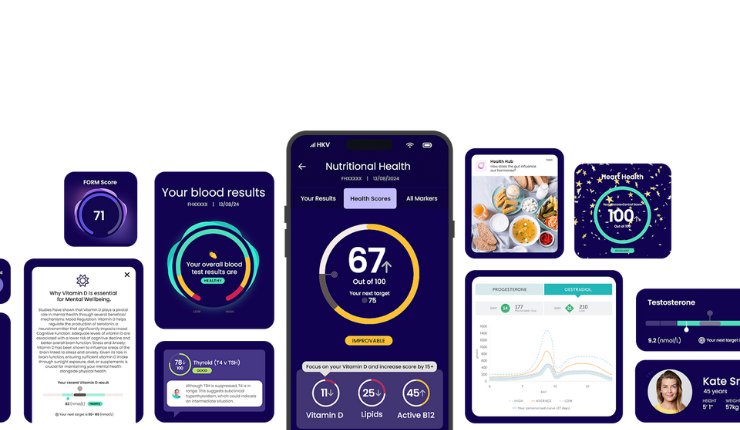

The need for remote medical services and the digitalization of healthcare became apparent long ago, but the rapid rise in awareness occurred during the COVID-19 pandemic. Since then, there has been a boom of health tech companies striving to improve medical research, delivery, payment, and/or consumption of care, and many have experienced rapid growth, especially in London and the Bay Area.
Health tech refers to any technology seeking to improve healthcare by implementing innovative technical solutions. From remote diagnostics to health monitoring devices, health tech startups aim to improve the everyday lives of healthcare professionals and patients alike.
Challenges in Health Tech
However, these groundbreaking health tech startups often face societal, industry-related, and financial challenges. Funding can be a big problem since health tech startups usually need significant investments even to start. Innovative technologies also often face resistance in the industry, as it is notoriously slow to adopt them.
Health tech startups also frequently need data that is difficult to come by, such as sensitive personal information from patients. Limited interoperability between different medical software systems with various standards, protocols, and data formats is another challenge faced by health tech. Strict regulations and a lack of funding and technical expertise can limit health tech’s expansion and even initial implementation.
Innovation districts, with all the resources they offer, including wet lab spaces and other necessary equipment, access to a skilled workforce, and funding opportunities, are the perfect environment for developing health tech startups.
The Benefits of Innovation Districts for Health Tech Startups
Innovation districts are revitalized urban areas, often close to and well-connected with universities or other academic institutions, that offer shared office and lab space to various interested parties. They mostly cater to innovative startups in a wide range of areas and are especially suited to the development of projects in life sciences.
Access to the most modern equipment in sophisticated shared lab spaces, a collaborative atmosphere, and access to funding opportunities are all advantages that make innovation districts perfect for health tech startups to thrive.
Health tech startups are among those that initially need a more robust financial base. They will most likely need expensive equipment, possibly also consumables, and skilled professionals from the start. Therefore, it is highly beneficial for a health tech startup to work within an innovation district, as they can gain access to cutting-edge technology within shared wet lab spaces, which diminishes the need for significant investments in the nascent phase.
They can also meet prospective new employees through contact with partnering academic institutions and meet potential investors in meet-and-greets that are often organized in these communities. Additionally, many innovation districts are close to healthcare institutions, making it easier for health tech startups to pitch their ideas to end users and potentially gain access to the research data they need.
Access to Cutting-Edge Research and Development
Health tech startups operating within innovation districts can benefit from many research and development initiatives. Shared lab spaces offer many cooperation opportunities. For example, health tech startups can collaborate on prototyping and testing innovative medical devices in biomedical engineering labs.
Personalized and regenerative medicine is another area that provides many opportunities for health tech startups. Cooperation with research centers focusing on customized healthcare based on genetic data and stem cell research can provide health tech startups with the data necessary to create new medical devices and tailored treatments.
Another promising area is AI and robotics in healthcare. The development of AI can significantly improve diagnostics, and startups can greatly benefit from access to AI labs that focus on machine learning applications in healthcare, such as predictive analytics and diagnostic tools. The same applies to robotic systems for surgery, rehabilitation, and elderly care. Health tech startups often need insight into automation in healthcare, and healthcare robotics labs that usually reside within innovation districts can provide it.
Health tech startups also need patient data and access to clinical trials. Innovation districts provide them with opportunities to contact healthcare institutions that conduct clinical trials and thus obtain the patient data and insights needed for product validation.
Health tech startups frequently work on developing digital health solutions such as wearable technology, mobile health applications, and telehealth solutions. Innovation districts create a network to access research and development projects and institutions dealing with these innovations, thus gaining the data they need to make the products. Research on data integration and interoperability of medical software can help startups improve their EHR systems and health data management solutions.
Contact between health tech startups and research labs within innovation districts can significantly accelerate the creation and implementation of new health tech solutions.
Funding and Investment Opportunities
Many health tech startups are entirely dependent on solid financial support, especially in the beginning, in the product development phase. The main reason is the necessity of technically sophisticated working space, including wet lab space and potentially expensive consumables. Additionally, health tech startups need a highly skilled workforce, compliance with legal boundaries, and the ability to be prepared for a lengthy development process before they deliver a product, even a prototype. It is, therefore, essential for them to ensure a financing source. Innovation districts can be very useful here.
Innovation districts often host events and networking opportunities that connect startups with angel investors, venture capitalists, and private equity firms focused on healthcare innovation. Within an innovation district, startups can sometimes even participate in pitch competitions where they present their business models to potential investors and receive funding or resources. Such communities often collaborate with nearby universities and government agencies and inform startups on grants and funding focused on research and innovation in health tech or even tax incentives. Startups working within an innovation district have the opportunity to enter partnerships with established healthcare organizations, leading to possible investments in promising startups.
Support from Business Incubators and Accelerators
Business incubators aim to help entrepreneurs refine their business ideas, develop products, and face the challenges of launching a company. They provide several resources and services, such as mentorship and assistance to secure funding. On the other hand, accelerators do more or less the same thing. Still, unlike incubators, which often focus on nurturing startups over a more extended period, accelerators typically operate on a fixed-term basis, frequently lasting a few months.
Business incubators and accelerators are crucial for health tech startups due to the unique challenges and complexities of the healthcare industry. Health tech startups need to take into account strict rules and regulations that apply to healthcare and, therefore, may need legal guidance that some incubators and accelerators can provide. The healthcare sector generally requires specific knowledge and expertise, and business incubators and accelerators can connect startups with suitable mentors who can provide adequate insight into product development, clinical validation, and market needs.
Health tech startups often face high development costs. Incubators and accelerators usually offer shared resources within an innovation district, such as lab space and equipment, which can significantly reduce overhead. These programs also provide startups with opportunities to connect with healthcare providers, investors, and industry leaders. This network can lead to partnerships, pilot programs, and funding opportunities and enable startups to test their solutions in real healthcare settings, gathering valuable feedback that can refine their products and increase their chances of success in the market.
Innovation Districts as Launchpads for Global Health Tech Impact
Health tech startups are particularly demanding regarding the resources needed to make a successful start and develop further. Since they require expensive equipment, specialized workspace, and often a constant supply of costly materials, innovation districts’ facilities benefit health tech startups greatly.
Startups can save precious funds through shared lab spaces and other work areas. Through connections with academic institutions and established businesses, they can reach adequate professionals, and through networking opportunities often provided in the districts, they can meet prospective investors.
The innovations emerging from the entrepreneurial ecosystems of innovation districts can have significant global impacts, particularly in addressing healthcare challenges. Health tech startups often develop solutions that improve patient care, enhance diagnostics, and streamline healthcare delivery, which can be adopted by healthcare systems worldwide. For instance, telemedicine platforms originating from innovation districts have transformed access to healthcare, enabling remote consultations that benefit underserved populations globally.
Moreover, technologies such as AI-driven diagnostics or wearable health devices developed in these districts can improve health outcomes and cost savings, influencing healthcare practices worldwide. The scalability of these innovations allows them to address diverse healthcare needs, contributing to global health initiatives and improving health equity. As these startups grow, their solutions can lead to transformative changes in healthcare delivery, ultimately benefiting populations on a larger scale.
Why Health Tech Startups Should Choose Innovation Districts
The bustling communities of innovation districts have propelled many startups to glory. Health tech startups are excellent candidates to get involved in these collaborative ecosystems, which provide resources, talent access, and networking. Health tech needs cutting-edge technology, and innovation districts can offer shared facilities that reduce overhead costs.
Universities and research institutions are close by and create opportunities for partnerships and access to skilled professionals. These districts additionally provide much-needed regulatory support and opportunities for pilot testing with local healthcare providers, enhancing product validation and credibility. Working within such a vibrant community facilitates connections with investors and industry leaders, aiding national and international scaling.
If you head a health tech startup, you should consider establishing your ventures within innovation districts. These dynamic environments provide the resources and support necessary for growth and nurture collaboration and networking. Embrace the opportunities these ecosystems offer to innovate, validate, and scale your solutions in the rapidly evolving healthcare landscape!








